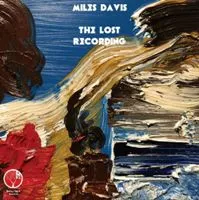Styles: Piano Jazz
Year: 1968
File: MP3@320K/s
Time: 40:55
Size: 95,5 MB
Art: Front
(5:54) 1. The Spanish Count
(5:38) 2. I Won't Be Back
(4:25) 3. Last Night When We Were Young
(4:08) 4. Do You Know The Way To San Jose?
(7:44) 5. Come Together
(5:01) 6. Something To Live For
(4:26) 7. Soul Time
(3:35) 8. This Guy's In Love With You
Bobby Timmons came out of Philadelphia at age 19, with a funky gospel tinged piano style, flavored with blues and hard bop. He would, in a recording career that would only span a short time frame, contribute to some of the best recordings on the legendary Blue Note sessions of the ’50’s , and be a member of two of the premier bands of that time, Art Blakey and the Jazz Messengers, and the Cannonball Adderley Quintet.
Robert Henry Timmons was born in Philadelphia in 1935, raised by his grandfather who was a minister in a church. The young Timmons began formal piano lessons at age six, and was the organist at his grandfathers’ church. This early formative period would certainly be a factor in his piano approach. He was be able to innovate and improvise on his gospel foundations and brought them into jazz. He had the lyricism of a Bud Powell in his solos, (who didn’t in the 50’s) combined with a very dominant left hand which was reminiscent of the stride and boogie players, but it was his sense of that down home chording and timing that really identified him.
His musical resume for the period between 1956 and 1969 is very impressive. He was with Kenny Dorham and the Jazz Prophets in 1956, which also included Kenny Burrell on guitar. In the years ’56 through ’57 he was with Chet Baker. The year 1957 would be a very productive and busy one as he worked and recorded with Hank Mobely, Sonny Stitt, Lee Morgan, and Curtis Fuller. In the same year and into ’58 was in Maynard Fergusons’ band, and also did session dates with Art Pepper and Kenny Burrell. He took over the piano chair in Art Blakey and the Jazz Messengers in 1958 at the age of 23. It was in period, that he wrote the classic “Moanin”, that would be a defining tune for that band, and one of his signature tunes throughout his career. He jumped over to the Cannonball Adderley Quintet in ’59 where he then wrote two big hits for them in “Dis Here” and “Dat Dere”. He stayed with Addelry into ’60 then rejoined the Messengers.
He stayed with the Messengers into ’61 then he began a solo career and worked with a trio format for a lot of his own recordings which continued up to 1969. Also in ’60 he did a lot of work with Nat Adderly, Arnet Cobb, The Young Lions, Lee Morgan, and Johnny Griffin. His output was amazing for the time, as it seems in looking at the chronological order of dates, he must have been constantly in the studio, this not counting the live dates on the road. His work is available on the Blue Note, Prestige, and Riverside labels, and many others as reissues and compilations. Quite an achievement by any standard! During the mid 60’s he would continue as leader of his own band and recording trios, and produced an extensive body of work in that period alone. He was able to find work in the smaller venues and clubs into the early ‘70’s where he was still in demand. His piano style would go on to influence Les McCann and Ramsey Lewis, and certainly a lot of the players in the ‘70’s with what would later be called funky or soul fused variations.
Bobby Timmons died of liver ailments in New York in 1974, at the age of 38. Though many would be led to believe that he was just another tragic figure in the annals of jazz, I don’t adhere to that line of thought, and measure and admire the man for his sheer volume of work, his participation and contribution with two of the best ensembles, and his influence, to whatever degree in jazz piano. https://www.allaboutjazz.com/musicians/bobby-timmons
Personnel: Bobby Timmons - piano; Joe Beck - guitar; Bob Cranshaw - electric bass; Jack DeJohnette - drums
Do You Know The Way?




















